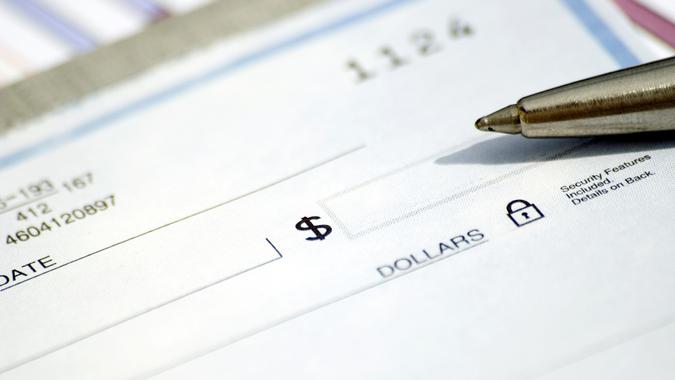A check is a written date, signed, and dated instrument that directs banks to pay a certain amount of money to the bearer. The person who writes the check is known as the payor or drawer, while the person to whom the check was written is the payee. The drawee on the other of the two is the bank where the check is drawn.
Checks can be cashed or they can be deposited. When the payer presents an unpaid check to a financial institution or financial institution in order to negotiate, the funds are drawn from the payor’s bank account. It’s another method to instruct the bank to transfer money from the payer’s account to the payee or the account of the payee. Computer checks are typically written against checking accounts, but they are also utilized to transfer funds from a savings or another type of account.
The Finance Ministry has declined the idea of a ban on checkbooks for encouraging digital transactions saying that the government does not have plans to end it. Here’s why Indian businessmen love their checkbooks.

India is undergoing a massive digital push and a mere news report about the government pulling the checkbook has caused enough ado. And, why? Because businesses still love their checkbooks for transferring money. Sure, India is moving -slowly — toward cash-less economies, but cheques continue to hold significance.
According to RBI data, in August, there were cheque transactions in the amount of around Rs 6,224.34 billion, nearly three times higher than debit card transactions, and close to 10 times more than mobile wallet transactions even as digital transactions surged after the Demonetisation era. Here’s the reason why businesses still prefer checkbooks despite moving to digital transactions:
Chargeless:
It’s digital transactions or different forms of the traditional financial instrument that are charged, there is an expense for each. Writing a cheque costs nothing.
Traditional:
Cheques have always been an integral aspect of the payment landscape in India. Over the years businesses have gained a sense of confidence and trust when writing cheques. Furthermore, options for securing the payment due in the future are now available through post-dated cheques.
Secure:
Digital transactions don’t come without Cyber security risks. Cheques are safe, they are given to someone and that person receives the cash in his personal account. It is common for companies to go with a secure option particularly when a substantial amount is involved.
Convenient:
But, especially in India in which a large portion of the population is trying to adjust to the digital boom, especially in the rural and small areas, writing a cheque is more comfortable than using a smartphone and entering the password and making sure the network is strong such as internet connection.
However, cheques do have their advantages as well. While online transactions are quick and secure, cheques could take between 2 and 5 days to be cleared, but in the event that it’s safer and free of charge, why businesses would shift to another method of payment without some incentive?
Pinky Khanna, the Personal Tax expert for EY India, says, “Cybersecurity threats, security against fraudulent transactions, and removing transaction fees from transactions made online are some of the most important steps to take before cheque books can be gradually eliminated. …. Also, teaching older people and those living in cities that are smaller is essential to make this an effective process.”

